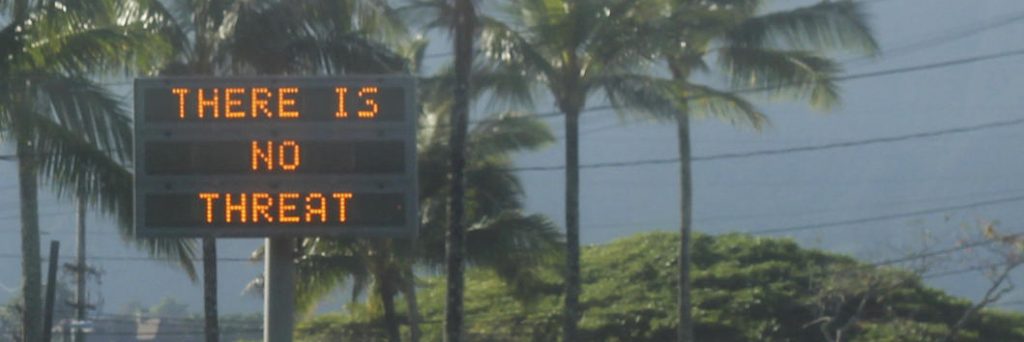How Can We Respond To A Crisis Better? An MIT Alum Has a Few Suggestions

In the wake of Hawaii’s false emergency threat last week, MIT Sloan recently discussed the two key lessons that will make countries more “efficient when responding to a crisis.”
Miyamoto International’s Elizabeth Petheo (MBA ’14) whose career has focused on international urban disaster and risk reduction and resiliency programs believes that countries in which disasters occur should drive resiliency efforts, but “international actors can act as a catalyst for knowledge transfer.”
Petheo explains that the national actors “who know the area best, understand what capabilities their community already has, and what needs to be strengthened” are the ones who need to drive the conversation. She advises communities to develop a checklist of sorts and ensure they have firm handles on questions related to the necessary equipment, whether there’s a control structure in place to make decisions, “who else in their ecosystem will be respond to disasters, and how their specific work area impacts other areas.”

Photo via Caleb Jones/AP
Part two of disaster relief involves the perspectives—and efforts—of the international community, which are necessary for communities to “understand links—how different actors who respond in a time of crisis can help and support each other,” according to Petheo.
Miyamoto, for instance, uses data to “help local first responders understand what different scenarios would be if an earthquake did strike their area, then help communities identify the gaps in their readiness and what areas could be strengthened.”
“To prepare for a crisis, there are a number of questions that communities can ask themselves. ‘This is not an exhaustive list,’ Petheo said, ‘but there are a couple of different buckets: the logistical and operations side of things; overall administrative management of how things get executed; and the players themselves.'”
Petheo concludes, “There is the economic, societal, social, and individual impact that’s happening all at the same time, which is what makes these kinds of emergencies so complex [but] the more you can think through what possible scenarios would be, what the situation that the community or government face would be, the better they are in coping when a crisis actually happens.”
Check out the recent of MIT’s article on disaster relief here.
